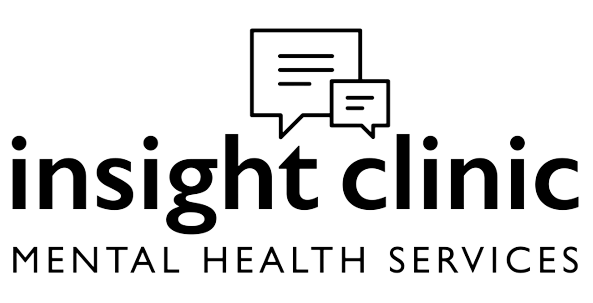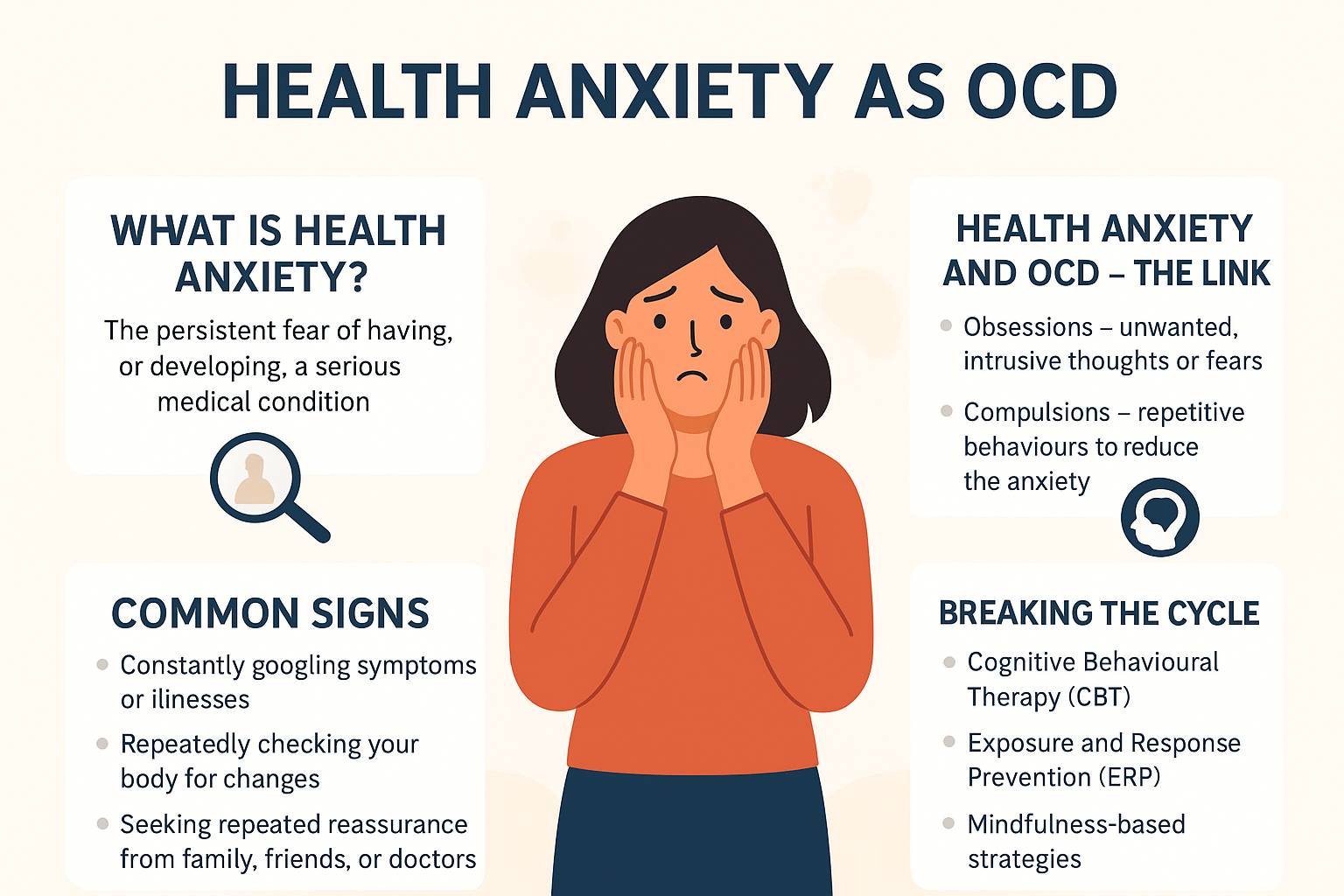Health Anxiety as OCD: When Worry Becomes a Cycle
Most of us worry about our health from time to time. It’s normal to feel anxious before a medical test or to be concerned if you notice a new symptom. But for some people, health concerns become overwhelming, constant, and life-disrupting. This is often referred to as health anxiety, and in many cases, it shares features with Obsessive-Compulsive Disorder (OCD).
What is Health Anxiety?
Health anxiety is the persistent fear of having, or developing, a serious medical condition. People experiencing it may spend hours each day scanning their body for symptoms, researching illnesses online, or seeking reassurance from doctors and loved ones.
Despite reassurance, the worry quickly returns — creating a cycle of fear, doubt, and more checking.
Health Anxiety and OCD – The Link
OCD is characterised by two key features:
- Obsessions – unwanted, intrusive thoughts or fears (e.g., “What if this headache is a brain tumour?”).
- Compulsions – repetitive behaviours to reduce the anxiety (e.g., googling symptoms, repeatedly checking your body, or asking others for reassurance).
When health anxiety functions like OCD, the fear of illness becomes the obsession, and the checking/reassurance-seeking becomes the compulsion. The more these behaviours are repeated, the stronger the cycle of anxiety becomes.
Common Signs of Health Anxiety as OCD
- Constantly googling symptoms or illnesses
- Repeatedly checking your body for changes (lumps, rashes, sensations)
- Seeking repeated reassurance from family, friends, or doctors
- Avoiding medical information, hospitals, or news about illness (opposite behaviour, but driven by the same fear)
- Feeling temporary relief after reassurance, only to have the anxiety return quickly
Why Reassurance Doesn’t Work
One of the hardest parts of health anxiety is that reassurance feels good in the short term but makes anxiety worse in the long term. Each time reassurance is sought, the brain “learns” that the only way to feel safe is to check again, ask again, or google again. This keeps the OCD cycle alive.
Breaking the Cycle
The good news is that health anxiety can be treated. Approaches such as:
- Cognitive Behavioural Therapy (CBT) – to challenge unhelpful thought patterns
- Exposure and Response Prevention (ERP) – to gradually reduce checking and reassurance behaviours
- Mindfulness-based strategies – to observe anxious thoughts without reacting to them
can all make a meaningful difference.
It’s also important to remember that health anxiety does not mean someone is “making it up.” The fear and physical sensations are very real — it’s just that the brain has become stuck in an over-protective mode.
Final Thoughts
If you find yourself stuck in a cycle of worry about your health, constantly seeking reassurance, or feeling like your fears are taking over your life, you are not alone. Health anxiety, especially when it takes the form of OCD, is more common than many people realise — and it is treatable.
Reaching out for support from a qualified mental health professional can help you step out of the cycle and reclaim peace of mind.




